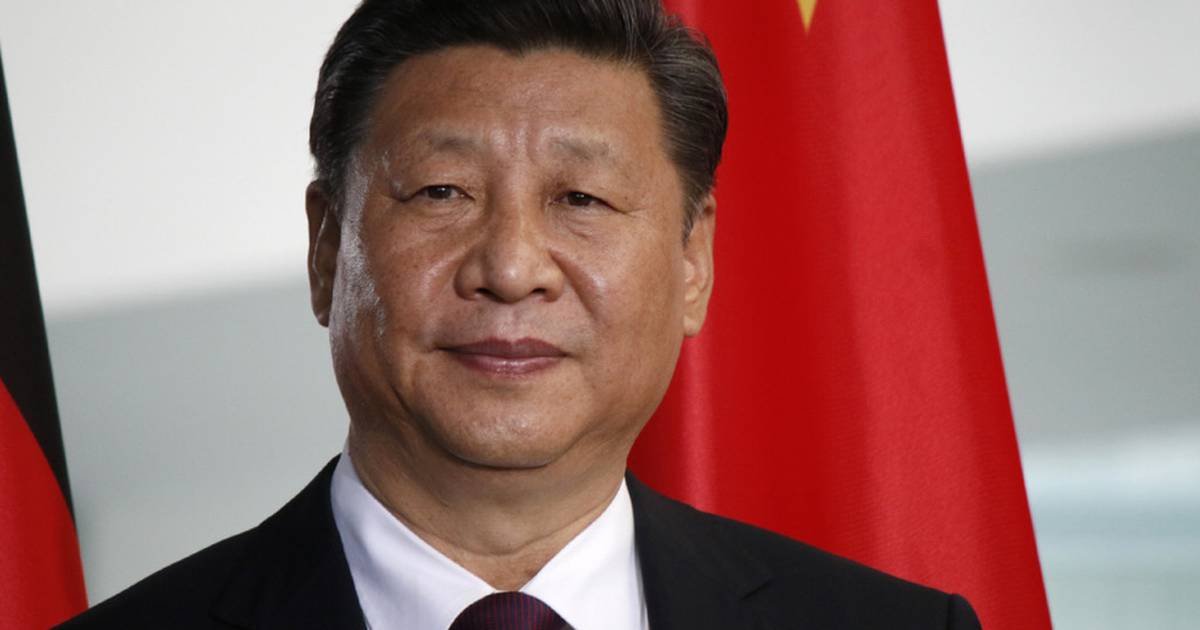President Xi Jinping promised to “never forget” the deadly NATO bombing of the Chinese embassy in Belgradeduring a trip to Europe that is amplifying fissures in the region's support for the United States.
“Twenty-five years ago today, NATO flagrantly bombed the Chinese embassy in Yugoslavia, killing three Chinese journalists,” Xi said, in a Tuesday article published in Politika, Serbia's oldest newspaper. “We must never forget that,” he added.
President Xi Jinping is expected to visit Belgrade around the 25th anniversary of the deadly US bombing of the Chinese embassy in the city, highlighting an event that sparked anti-American protests in the country and contributed to sowing distrust in Beijing towards NATO.
The Chinese leader will stop in the Balkan nation on or around May 7, according to people familiar with the preparations, who asked not to be identified because the schedules have not been made public. During the bombing of Yugoslavia by NATO in 1999US missiles killed three Chinese journalists in an attack that the White House later called a mistake and attributed to faulty maps.
The Belgrade bombing brought Russia and China together over anti-American sentiment, forging a partnership that has since grown stronger and is causing alarm in the West. President Vladimir Putin's invasion of Ukraine has put that relationship under scrutiny, and the United States and the European Union have increased pressure on Xi to limit Beijing's support for Moscow's war machine.
China's Foreign Ministry did not immediately respond to questions about the details of Xi's after-hours trip to Europe.
When visiting a European nation that has not adopted Western sanctions against MoscowXi would make “clear that China will support Russia and deepen their partnership,” said Neil Thomas, a China policy researcher at the Asia Society Policy Institute Study Center. Analysis of China. “The main function of that close relationship is to balance the situation against the United States.”
Adding to the political theater, Putin, Russia's longest-serving leader since the Soviet dictator Joseph Stalinwill assume his fifth term on May 7.
Xi Jinping travels to Europe; he will make stops in France and Hungary
Xi's trip to Europe, which includes stops in France and Hungary, comes after German Chancellor Olaf Scholz this month urged the Chinese leader to persuade Putin to end their “mad” war. The European Union's top diplomat in Asia said Beijing's support for the Russian leader is a “big problem” that threatens ties with the bloc.
Secretary of State Antony Blinken will express similar concerns in Beijing this week, as the United States drafts sanctions targeting Chinese banks that help the Russian militaryaccording to the Wall Street Journal.
After Putin launched his full-scale invasion of Ukraine in 2022, Chinese officials publicly referred to the bombing of Belgrade several times, while Xi's government expressed solidarity with Russia's position that NATO aggression in its borders required war. Beijing mentioned the attack again in recent weeks.
Geng Shuang, China's deputy ambassador to the United Nations, referenced the embassy attack in March, calling it “a flagrant violation of China's sovereignty” at a UN Security Council meeting. This month, he invoked the incident in condemning the attacks on Iran's embassy in Syria..
Thousands of protesters across China attacked the embassies and consulates of NATO member states after the bombing, and some burned American flags. Although the then president of the United States, Bill Clinton, formally apologized days later, suspicion remains among some in China that the incident was intentional. The attack took place during NATO's bombing campaign, which led Belgrade to withdraw its forces from Kosovo.
“Many people in the People's Republic of China continue to view the bombing as something that was done on purpose, despite efforts by the United States and NATO to explain that it was an accident,” said Chong Ja Ian, associate professor of political science. at the National University of Singapore, using China's full name.

